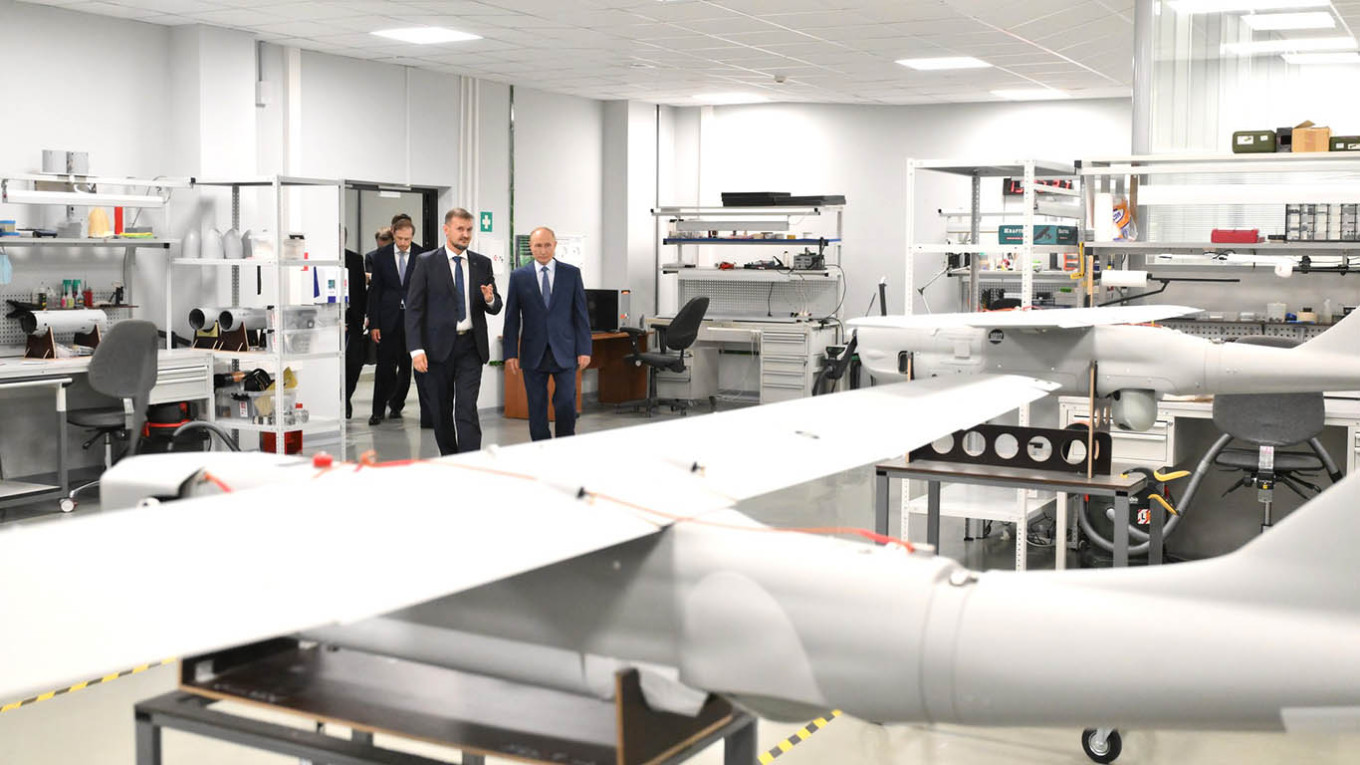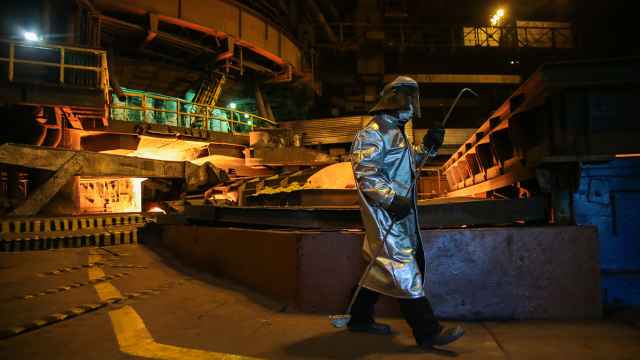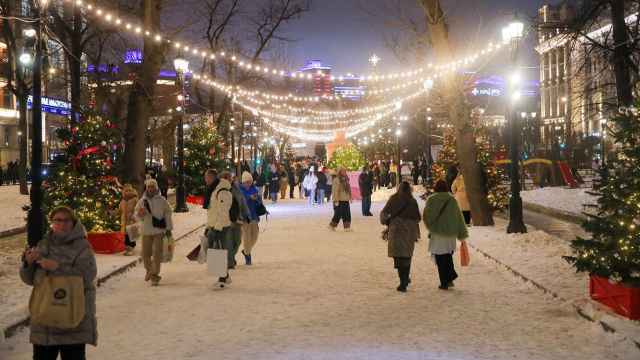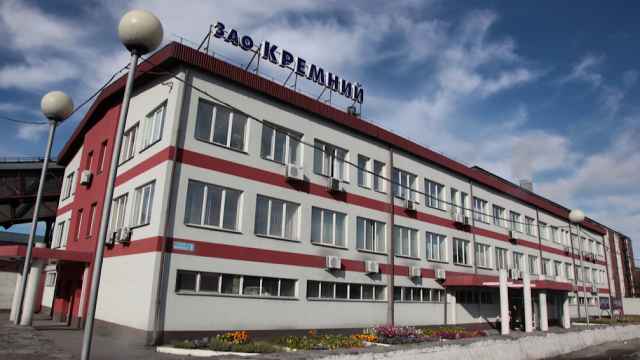Russia’s industrial sector, fueled by the defense sector, grew by 1.6% in May and 1.8% over the last year after accounting for seasonal factors, state statistics service Rosstat has reported.
The results come as civilian industries have reported widespread contractions, leading analysts to warn that Russia’s economy has become disproportionately driven by the military-industrial complex in the fourth year of its invasion of Ukraine.
Tverdye Tsifr (“Hard Numbers”), a Telegram channel that reports on financial data, noted a 42% surge in the output of “miscellaneous transport equipment” and a 14% increase in finished metal products over the last month, compensating for weaker performance in March and April.
Clothing production increased by 12%, and production of electronic and optical products, computers and pharmaceuticals rose by 9%.
Analysts at Raiffeisenbank estimated that the machinery-building sector expanded by 7%, while all the other parts of the industrial sector contracted by a combined 0.4%.
Analysts from Russia’s largest private bank Alfa-Bank described the May results as evidence of a highly segmented economy.
Previously, “when civilian growth was weak and defense growth was robust, all sectors expanded to some degree,” wrote MMI, a Telegram channel that analyzes Russian and global microstatistics, of the new divergence between military and civilian industry.
“Now, all civilian industries have recorded declines, while defense output has accelerated. There are not enough resources to go around for everyone, so someone has to cut back,” it said.
Analysts from Promsvyazbank noted a third consecutive month of declining industrial prices.
Rosstat reported that the producer price index for industrial goods shrank by 1.3% in May and by 2.8% since the start of the year.
A sustained decline in industrial prices, Promsvyazbank warned, “signals the real economy’s diminished resilience to high interest rates.”
Tverdye Tsifr placed the seasonally adjusted drop in automobile production for May at 4%, wood products at 3% and rubber and plastics at 2%.
For the year, Rosstat data showed a 13.7% decrease in the production of cars and trailers, a 3.2% decline in furniture output, clothing down by 2.3% and output of rubber and plastics and wood products falling by 3.4% and 1.9%, respectively.
Production of leather goods dropped by 16.9%, while food and beverage output decreased by 0.9% and 3.3%.
According to the government-affiliated CMACP analytical center, industrial growth has been mostly concentrated in the defense sector, with civilian industries remaining stagnant since mid-2023.
Deputy Prime Minister for Agriculture Dmitry Patrushev attributed this to “increased working capital costs resulting from the current key interest rate.”
Raffaisenbank also argued that industrial output is constrained by the Central Bank’s 20% interest rate.
“The strong ruble and the Central Bank’s interest rate [are factors] making credit resources more expensive for enterprises, thereby cooling economic activity and reducing domestic demand,” the bank wrote in a Telegram post.
A Message from The Moscow Times:
Dear readers,
We are facing unprecedented challenges. Russia's Prosecutor General's Office has designated The Moscow Times as an "undesirable" organization, criminalizing our work and putting our staff at risk of prosecution. This follows our earlier unjust labeling as a "foreign agent."
These actions are direct attempts to silence independent journalism in Russia. The authorities claim our work "discredits the decisions of the Russian leadership." We see things differently: we strive to provide accurate, unbiased reporting on Russia.
We, the journalists of The Moscow Times, refuse to be silenced. But to continue our work, we need your help.
Your support, no matter how small, makes a world of difference. If you can, please support us monthly starting from just $2. It's quick to set up, and every contribution makes a significant impact.
By supporting The Moscow Times, you're defending open, independent journalism in the face of repression. Thank you for standing with us.
Remind me later.






